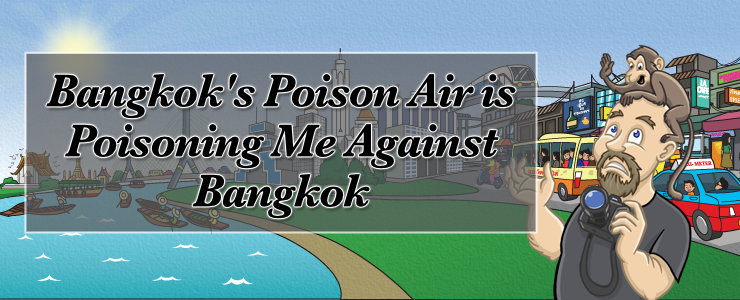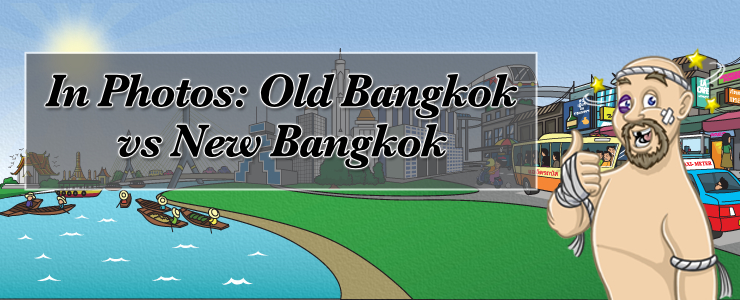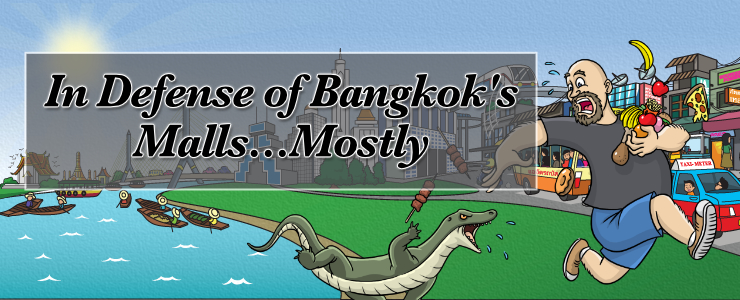This post will only really be understandable to those who are familiar with Thailand’s recent political past. I’m not going to try to weigh in either way on the political problems that the country is dealing with (there are plenty of others who do it far better than I), but I did read something the other day that struck me as incredibly interesting, and it was too thought-provoking for me not to post about.
Before I tell you what it is, let me reproduce it here. I have replaced some terms which would give it away with more general, non-specific terms in blue. Have a read and see what you think:
I think it’s worth reiterating what had led to this impasse. After the lower classes were integrated into the political process, an oligarchy of wealthy families on both sides of the original class divide found their interests generally aligned. There was a great deal of pressure from within this oligarchy to not sell one another out. When internal disputes emerged – that is, the rivalry between one side and the other side – they were not allowed to spill out into the lower socio-economic orders. For hundreds of years these families bred among themselves and protected the property and privileges their status afforded them. So even if two old oligarchs hated each other, one wouldn’t turn to the people with promises of land reform in order to put pressure on the other. Threats to upend this order were dealt with swiftly and harshly, usually in the form of social ostracism. For these highly social people, this was a fate worse than death, and had the effect of keeping everyone in the upper class pretty much on the same page.
But after a while this solidarity began to break down…the long wars had decimated the upper classes, and they had been repopulated by new families who were new to power and had no great loyalty to the old oligarchs. They identified with the masses and had no compunction about using popular causes as a means to leverage personal power. Suddenly, rather than ignoring the masses, politicians were proposing land reform and grain doles that flew in the face of everything the old order stood for. Because what the old order stood for more than anything else, was the monopolization of land and trade by a few select families.
Into this environment stepped a powerful new politician, scion of a wealthy family who championed populist causes as a way to reach the top of the political ladder. He was a charismatic leader who should have been a strident defender of of the privileges of the old order but instead used his political skill to blow those orders up. Because of this betrayal, the conservative politicians hated him. They could see their way of life slipping away and were trying desperately to stem the tide of reform. And here was this enormously talented politician who ought to be helping them, not helping them, and instead making things even worse. And not only that, he seemed to enjoy watching them squirm. So they were eternally vigilant for the moment they could turn the tables and watch him squirm for a change.
Okay, I know it’s a lot to read, but what do you think that’s talking about? Let me repeat the paragraph below, with the original phrasing again in blue:
I think it’s worth reiterating what had led to this impasse. After the plebs were integrated into the political process, an oligarchy of wealthy families of both sides on the original class divide found their interests generally aligned. There was a great deal of pressure from within this oligarchy to not sell one another out. When internal disputes emerged – that is, the rivalry between the Flavian and Claudian families – they were not allowed to spill out into the lower socio-economic orders. For hundreds of years these families bred among themselves and protected the property and privileges their status afforded them. So even if two old patricians hated each other, one wouldn’t turn to the popular assemblies with promises of land reform in order to put pressure on the other. Threats to upend this order were dealt with swiftly and harshly, usually in the form of social ostracism. For the highly social Romans this was a fate worse than death, and had the effect of keeping everyone in the upper class pretty much on the same page.
But by the end of the Punic Wars this solidarity began to break down…the long wars had decimated the upper classes, and they had been repopulated by novus homo, who were new to power and had no great loyalty to the old oligarchs. They identified with the masses and had no compunction about using popular causes as a means to leverage personal power. Suddenly, rather than ignoring the masses, praetors and consuls were proposing land reform and grain doles that flew in the face of everything the old order stood for. Because what the old order stood for more than anything else, was the monopolization of land and trade by a few select families.
Into this environment stepped Julius Caesar, scion of an ancient family who championed populist causes as a way to reach the top of the political ladder. He was a charismatic leader who should have been a strident defender of of the privileges of the old order but instead used his political skill to blow those orders up. Because of this betrayal, the conservative senate hated him. They could see their way of life slipping away and were trying desperately to stem the tide of reform. And here was this enormously talented politician who ought to be helping them, not helping them, and instead making things even worse. And not only that, he seemed to enjoy watching them squirm. So they were eternally vigilant for the moment they could turn the tables and watch him squirm for a change.
Okay, if you haven’t figured it out by now, this is a brief summary of the political situation in Rome in about 50BC and the tumult that was caused when Julius Caesar, a brash, popular politician, started getting a bit too popular for many of the old men in the senate. This of course led to the First Triumvirate, bloody civil wars, the end of the Republic, and the beginning of the Roman Empire.
Now obviously I’m not comparing Thaksin Shinawatra, who was the spark that ignited much of today’s political volatility, to Julius Caesar, that would be ridiculous. There are those that say this description can be applied directly to the situation in Thailand, and those who say it doesn’t fit, but I’m pretty sure most people could at least say there are some elements that seem awfully familiar. I’m also not trying to say that this situation applies specifically to Thailand; I’m sure there have been many situations throughout the years and around the world that these same paragraphs describe quite accurately.
I just thought it was interesting – and a bit sad – that some of the exact same problems we’re dealing with today are just as problematic as they were nearly 2,100 years ago. Just something that made me think a bit.
By the way, I took this from the incredible podcast The History of Rome, which I’m currently listening to for the second time. All 179 episodes of it. If you’re even remotely interested in history or ancient Rome, it’s an absolute must.





Interesting comparitive here – a great example of how history can help us to better understand the present. The trick then is to (for those who can actually grasp and have influence on the trajectory of a country) use that understanding of history to influence a future that has utilitarian results… I guess it’s the closest to Time Travel one could hope to get. Thanks for the suggestion of the podcast. Have you done any?
Thanks Siamerican and yeah…the famous quote “Those who do not learn from the past are doomed to repeat it” isn’t worth very much if you just say “I’m different.”
Beyond the Bangkok Podcast, I haven’t done any myself, but would love to get back into it. If only there was a way to make money from it in Thailand. 🙂
ABout the only way you could do that would be to podcast about which bar is hot this week or ladyboys….. or which ladyboy bar is hot this week.
Don’t think that’s your thing though.